Ever seen the movie 'Millions?' You should. Especially at this time of year. Here's the trailer.
The musings of the Pastor from Good Shepherd Lutheran Church, Regina SK
If you like what you see here, consider joining us for worship at Good Shepherd Lutheran Church. Sunday mornings, at 8:30 and 11:00. You can also follow us on Facebook.
Sunday, November 7, 2021
Millions
Sunday, October 31, 2021
The business of reformation
Dr. Martin Luther burned a papal bull, nailed 95 theses to the door of the Wittenberg Cathedral, and now we have the Lutheran church. What a history lesson.
There's more to it than that, of course, but Luther wanted everyone to be aware of the fact that he didn't want to make a new church. All he wanted to do was to reform the existing one. This was not a new faith, this was a return to the one that was long forgotten. Now, how can you tell?
One of the most important things for Luther was the scripture - reading and writing it in the vernacular of the area. The word of God was supposed to be known, read, marked, learned and inwardly digested. It wasn't much good if nobody could hear it or understand it. If it was kept far away, in a distant language, inaccessible to the masses, then what good was the scripture?
What's the proof of this? The proof of this being intended from the start is in the scripture itself. There are multiple occasions in the Bible where there are words, and then there are explanations after the words, and this happens in the text itself. For example 'Rabbi, which means teacher.' Why does the text tell you that? Why doesn't the text just say 'teacher?' Well, passages like this are a reminder that the Holy Scriptures, at least the New Testament, have never not been translated. From the word go, you find passages like that one, where a word is spoken, and a translation is given, but the original word is presented as a reminder to you, and to me, that the words were spoken in the language of Israel, but were translated into Greek to be written down. Why?
Well, how's your Aramaic? If it's anything like mine, it ain't that great. And that would have been the case for the vast majority of humans alive not only now, but at the time as well. It's a niche language, spoken by a people who were deliberately set apart from the rest of the world. An inscrutable language that would have been largely impenetrable to the Romans within the nations, and the pagans without. But that would have been the language that Jesus would have been speaking to his crowds, and they would have understood him.
But your Aramaic isn't very good. Nor is mine. And how dare we read the scriptures without knowing Aramaic? Because very very little of the scripture is written in Aramaic, and that which is is helpfully translated one word later, so that you know what the speakers would have been saying, but you know it in your own language. For the New Testament was written in Greek.
Why Greek? So it could be understood. I want you to look at this image for a second.
This is the reach of Alexander the Great, and how far he was able to get into the world. That's a big empire. And the Greeks did what they typically did, which was to spread out, and to spread Greece. Part of empire building for the Greeks was to spread Greece to the world. To civilize. To make the known world into Greece, the pinnacle of civilization. Part of that was to bring Greek culture, religion, language to the rest of the world. Essentially, the empire was to not so much be an empire ruled by the Greeks, but would become part of greater Greece. For more on this topic, check out the books of the Maccabees from the apocrypha.
What that meant was that by the time of Christ, the Romans had inherited an empire that had Greek as a language from end to end. Sure, the Romans would have worked with Latin, and the Hebrews with Aramaic, but all over the empire, everyone would have had a passing knowledge and working relationship with Greek. It's what they would have all had at least as a second language. What that means is that if you have something important to say, you're going to want to say it in Greek.
The story of Christ was something that had to get out there as rapidly as possible. The story of the salvation of the world, it was a story that would go out from one end of the empire to the other, and to all the known world. And so the disciples transcribed the word of God in Greek, so that it could be understood by people all over the world.
The oldest and most reliable version of the Bible, then, isn't in Aramaic, but instead is translated out of Aramaic. Into Greek, sure, but done so that as many people as possible can hear and understand it. And what that means is that Dr. Martin Luther, in his desire to make the scriptures as understood as possible in the world, wasn't bringing something new to the world, but was instead calling us back to something as old as the scriptures themselves. From the word Go, the scriptures were made accessible, and Luther called the church of his age, and ours, back to that.
And it's still our job to make Christ known in the world. It's still our job to remove obstacles from Christ, for him to be known in this world, and for his word to be understood. We have to remove all the barriers, including the ones that we have made. It's a hard thing for a church to understand when they have placed stumbling blocks in the way of Christ, and most churches never get over it. But we are a reformation church, built on the principles of the reformation. We are built up off of the foundation of scripture alone, and we need to act like it. All those distractions, all those barriers or stumbling blocks, they all have to be pulled aside, and the purity of the Gospel message has to get through. And that will mean that we're going to have to deal with occasionally getting out of the way ourselves. Unleash the scriptures, and let them speak. Let the people hear them, and believe in them, without forcing them to first believe in you, and then let Christ speak to them. Just as he wanted to do from the beginning.
Sunday, October 24, 2021
Blindness and kindness
Who is Bartimaeus? All we know about him is that he is the son of Timaeus, and that he is blind. And as far as details in the story go, that's all you need to know. Everything else isn't exactly relevant to the conversation.
And that's all anyone knew about him. Blind Bartimaeus. And I'll bet that he did exactly what you'd expect him to do - sat by the same place, begging in the same location. Likely an area that got a lot of foot traffic, where he would get maximum exposure, and people would know who he was, which they did. Blind Bartimaeus, as much of a fixture as a building or a signpost, regular enough to give directions by . And that helps if you're blind. If you know the features and the topography, you can get yourself around okay, but you really don't want to go too far afield. Stepping into the unknown is terrifying, as you can't see what may be ahead, so you stay in a world that you understand. So you stick to what you've got, you don't take too many chances, and you play it pretty safe. And boy oh boy, Bartimaeus would just hang out there at the fringes, and wait for people to come by, and hope that they'd contribute something to him.
But guess what. We're dealing with a problem that hasn't gone away. We've gotten better at giving people better access to services, we've gotten better at providing them with opportunities, that kind of thing, but what we haven't really gotten better at has been how we treat the disabled. That is, we still have a real paternalistic attitude towards them . We still look down on them, treat them like children, and talk over them and past them. After all, what do they have to contribute? What do we care?
This has really continued. It's still a problem where people will not exactly treat one another equally. The needier someone is, the greater the likelihood that we will treat them like overgrown children. That's true now, and it was true in the time of Christ. Here's the reading for this Sunday in the Good News translation which I think captures the tone quite well.
46 They came to Jericho, and as Jesus was leaving with his disciples and a large crowd, a blind beggar named Bartimaeus son of Timaeus was sitting by the road. 47When he heard that it was Jesus of Nazareth, he began to shout, “Jesus! Son of David! Take pity on me!”
48 Many of the people scolded him and told him to be quiet. But he shouted even more loudly, “Son of David, take pity on me!”
49 Jesus stopped and said, “Call him.”
So they called the blind man. “Cheer up!” they said. “Get up, he is calling you.”
50 He threw off his cloak, jumped up, and came to Jesus.
51 “What do you want me to do for you?” Jesus asked him.
“Teacher,” the blind man answered, “I want to see again.”
52 “Go,” Jesus told him, “your faith has made you well.”
At once he was able to see and followed Jesus on the road.
Did you catch how they treated Bartimaeus? Not exactly politely, or as an adult who can make his own decisions. Rather, they scolded him. In other translations, it says that they 'rebuked' him, but to rebuke is one of those words that seems to exist only in the scriptures. It's like being scourged, that seems to only exist in the scriptures too, and it seems to only apply to Christ. To rebuke is to be in the scriptures, in a stained glass world, and to not be much in the real world. But to scold? Well, who is it who scolds?
Typically, you scold your inferiors. You scold people whom you have power over. Teachers scold students, parents scold children, and here, in this reading, the good people scold Bartimaeus. They know better than him, they're able bodied, he is not, and therefore, they feel free to scold him, and to effectively talk down to him. To diminish him, and to let him know who is in charge. In other words, you sit there and shush up, and we'll get to you when we get to you, if at all.
But Christ calls to him. And when Bartimaeus comes over to Jesus, Jesus asks him 'what is it that you want?' What a moment that is. Someone who has been scolded, walked past, ignored, and dismissed, has God in the flesh approaching him, and asking him what he would have him do. The Lord of life, the creator of the universe comes to a beggar and asks him what he wants. And for the first time, perhaps ever, Blind Bartimaeus gets to choose. What a moment. Blind Bartimaeus getting to select what it is that he would see happen, and Christ, the king of the universe, decides to allow.
Friends, this moment should remind us of two things for us to consider. One, that Bartimaeus really shouldn't have been treated like a small child. If this is someone that Christ spoke to, and didn't walk past or talk past, that should remind us that these are people who should not just be given charity, but who should be given dignity and respect. They're people too, you know, and should be treated accordingly. Their dependence on help shouldn't cause you to look down on them precisely because of point number two, which is that before Christ, we're all beggars. Able bodied or disabled, blind or sighted, impaired or not, we are all beggars at that throne of grace. And like it or not, we're all temporarily able-bodied. Our approach to the throne of Grace is not as equals, but is as beggars, people who are needy, who cannot provide for themselves. And Christ deigns to listen. To provide.
He asks us what we need. And he listens. We tell him about our troubles, our strife. We tell him about our weakness, our fears, our sickness and distress. We tell him all about how we need so much, and can provide so little. And then, we tell him what we want, and what we want is to live forever, to never run out, to never get tired or afraid.
And that's what he listens to. Like blind Bartimaeus, we can't fix that problem ourselves, and are reduced to, as those spiritually blind, calling out to Christ in desperation. And he listens. And he heals and restores. Our need doesn't keep us from Christ, in fact our need is the whole reason that he's here at all. To save and to restore those who know how needy they are. And once we work that out, we will cling to him all the more, as blind beggars finding the source of sight, life and salvation.
Sunday, September 5, 2021
Working
People are a bit gunshy about the book of James - especially Lutheran people. And I get that, I do. We are people who believe, teach and confess what the Bible does, that we are saved by grace through faith.
If your entire world is all about salvation, being in the right number, the right group, then the book of James would seem to carry little utility. After all, what's the point of all this works mumbo-jumbo if they don't save, and are known not to save?
But hold your horses, ladies and germs, because the book of James answers a particularly important question, namely what now? The people who came to John to be baptized in the Jordan river were people who were baptized, and upon being baptized, or at least around their baptism, asked John the important question 'what should we do then?' Great question. And the people coming out to be baptized understood that their Christian life was not a matter of baptism, being saved, and then that's it. The crowds that came out to be baptized were crowds that understood that after baptism, there was still going to be some living involved.
John runs down for them what they should do. They should share their excess of food and clothing. They should not collect more than they are required to do, and they should be content with their wages. John understood, as well, that upon becoming a person of faith, there is still lots of living left to do.
One of the most frustrating things about being any kind of evangelist is the work that is required to punch through the surface reading of the ten commandments. For on their surface, you might be forgiven for believing that what God wants you to do is to just avoid activity. His rules are just so much 'thou shalt not,' which does make up the majority of the commandments. And if you look at that, you may think that the best route to choose is to be baptized, and thereby welcomed into the family of Christ, and then lapse into a coma immediately, thus avoiding all the pitfalls of sin.
But you wouldn't, would you? That wouldn't avoid sin at all. For sin is not just what you do, sin is what you do not do that you ought to do. Think about the parable of the talents for a moment. The parable that presents you with a scenario: three men are given varying amounts of wealth to manage while their master is away. The one with ten talents multiplies it through shrewd investing, and doubles the wealth. The one with five talents also invests it, and gains five more. But the one with one talent takes it and buries it, so that when the master returns, he gets his one talent back. But instead of being happy, the master is furious. He expected the servant to, you know, do something with that talent.
That is the Christian life as expressed through James. And we echo it in every worship service - we have sinned in thought word and deed, by what we have done, and by what we have left undone. We were made to do good works, and we so frequently avoid them. We have the right opinions, sure, but who doesn't? But God has made us his workmanship, created to do good works, which he has prepared in advance for us to do.
So here's the rub. We are enjoined by the scriptures to do the right things, and frequently avoid them. But because we want to think of ourselves as good people, we have deftly swapped out good deeds for good opinions. But as James points out, saying to someone 'go on your way, be well fed' doesn't do anything for them. It does something for you, though. It lets you think of yourself as a goodie, having conflated thinking the right things with doing the right things. And if your perception of being a good person depends on following laws and rules, you will change them to fit what you do already.
Picture this, though: Christ not only shed his blood for the things you do, he shed his blood for the things you don't do too. All the chances you didn't take, the times when you walked on by and didn't stop, all those are the things that Christ died for. And the book of James, instead of telling you what you must do to be saved, tells you what it is that Christ saves you from - your deeds as well as what you didn't do. The other option is to change the impulse to do good with saying the right thing, but that doesn't help anyone but you.
Friends, I ask you a simple question: Did Christ come to be in a coma himself? We say he fulfilled the law, did he do that by remaining perfectly still, and thereby not sinning at all? Or did he get to work? The image that we have of Jesus being perfect is bound up by him doing what had to be done. Don't shy away from his perfection, though. Embrace it as what wins your salvation. Then once your salvation is assured, then you can think about why you are here - what has God placed you here to do, that only you can accomplish? And knowing that, you can think about the works that your neighbor needs. You will never do it fully, but the alternative is to not try, and to say that it is too hard.
And it is too hard. For you and for me. But not for Christ, who forgives not only what we have done, but what we have not done. And knowing that gives us the iron in the soul to say of our Christian ethic - "I may not do it completely, I may not even do it well, but I can still see it as something that must be done."
Monday, August 9, 2021
Bread and more bread
No carb, low carb, gluten free, all that is placed on one side of the scale. The other side of the scale is, happily enough, civilization itself.
I'm not overstating things, either. For a lot of human history, there was a lot of wandering around after your food. In an age of pre-refrigeration, when meat would spoil remarkably quickly, the only reliable way to keep meat fresh was to keep it alive. Essentially, the bison, or goats, or sheep, or what have you, were walking refrigerators, and you pulled the meat out of them when you needed it. But it was all in one shot.
So what that meant is that your life was spent in perpetual meandering after your meat. People tended to settle near the sea because at that point, food was relatively abundant, and you could catch it, net it, gut it and eat it without having to move place to place. But everyone else, your life depended on pastureland, on the roaming of herds, and so on.
Monday, July 12, 2021
Yes, all of you
After something is in effect for long enough, it ceases to be surprising anymore. Even if it is an absolute revelation, it stops being amazing. Case in point, this scene from Bernard and the Genie, where a Genie (Lenny Henry) has been in a lamp for thousands of years, and upon being awakened, he has a fish-out-of-water time in 20th century England. Much has changed, and so he finds that things aren't as he remembered.
When the Genie runs out onto the street and loudly proclaims 'hey everyone, you won't believe this! There's this thing that is cold and tastes completely of strawberries! It's fantastic!' Bernard comes out and says 'they've already tried it, it's nothing special to them.' The Genie then responds 'you're all crazy!'
For the Genie, strawberry ice cream was new enough to be fantastic and thrilling. For the rest of us, we've long since gone past jaded. Sure, ice cream is nice, but we're so used to it that we don't run out into the street and proclaim its greatness. And so too it is with one of the most shocking parts of Christian doctrine. Are you ready?
Christian laws apply to the wealthy and powerful as well as the poor and lowly.
Now, I know that none of you are going to run outside and let everyone know about the greatness of that truth, but I do want you to think about it for a second, because it really is an aberration away from normal human operating procedure. What happened for most of human existence was that the wealthy and powerful set the rules and the tone. It was the golden rule, you know: he who has the gold, makes the rules.
And Herod was used to that idea - that is, Herod wasn't used to being told 'no.' By anyone. Herod was used to being told yes by everyone, whatever he wanted to do was fine, because he was in charge. The rules would depend on who was doing something at the time, and if the people who wanted to do something were rich and powerful, they could do what they wanted.
Herod was used to that. He wasn't used to anyone telling him no. Especially not a wild man from the desert, a wild man in the wilderness, John the Baptist, the one who was clothed with camel's hair, with a leather belt around his waist. John the Baptist, who ate locusts and wild honey. John the Baptist who preached repentance, and preached it hard.
Of course, you could understand if John the Baptist only preached against the poor and the downtrodden, the workers and slaves. After all, that's what you would expect religion to do, right, to be useful to the powerful, and to keep the peasants in line. But after John tells soldiers to only take what they are offered as fair pay, he then harangues Herod and Herodias about their relationship. Their relationship is illicit, according to God's law, and unlike everyone else, John would let him know about it.
And this is new. This is new and shocking, the idea that the word of God would universally apply to everyone. It wasn't just the poor and the workers who needed to be kept it line, it was the rich and powerful too. And shockingly enough, the rules of God wouldn't bend just because you happened to be in charge. You couldn't be rich enough or powerful enough or anything like that and hope to get by based on that. No, you'd be equally called out for that, because God is no respecter of persons. You don't skate on by because you're rich and powerful, you can't get away with things because you're wealthy. Instead, the laws of God, the ten commandments apply to the rich and poor, the powerful and the peasant. Kings and paupers, all of them are held by those same laws. It is equally wrong for a peasant to fornicate as it is for King Herod, and John the Baptist was keen to point that out. He wasn't afraid to do so, even though to do so would cost him his life. He didn't blink away, or hide from such a calling, but called it all out as loudly as he could. Sin is sin, no matter who commits it.
And if you know your history of the middle ages, you'll know that instead of religion being a tool to keep the poor and the peasant in line, it functioned to keep the rich and powerful in line. What else would keep the governors in line, given that they weren't elected nor did they report to an electorate ever. They exercised power, and had very few constraints, except for that of the church. For it was the church, the law of God, that acted as a powerful restraint on the rich, the wealthy and the powerful. It was the law of God that stopped those with absolute power from running their power too far. For they were reminded always that the law of God applied to them, and that the law of God enacted as a great level on all of them, rich and poor alike. Though they had massive power, their power didn't overrule the law of God, which was outside their power to change.
John was locked up for bringing this up, that the rules applied to the rich as well as the poor. And Herodias would rather John die than to change her ways, so she found a way to have him killed. But the law of God continues, whether you kill the prophets or not. Whether you lock up the prophets, kill them, slam the Bible shut, whatever, the law of God still applies. And you can't bribe him, cajole him, or scoot by because your your wealth, power or position. He still knows who you are, and still assesses you accordingly.
But the good news that Herodias didn't bother to contemplate is that just as the law of God applies universally, so does the Gospel of Christ as well. The law of God applies to everyone, rich or poor, wealthy or peasant, but the Gospel of Christ applies to everyone, no matter what they have done, no matter how far they had gone. One of the great outrages that people had with Jesus was that he dared to welcome sinners and eat with them. How dare he! Of course. But people will almost always be rattled by the notion that Jesus Christ offered the Gospel to people who they thought should have been too far gone for God's grace. But in reality, what we have to get our heads around is that the law of God applies no matter who you are, and the Gospel of Christ applies no matter what you've done. This wasn't always the way people thought it was, but it is the way that Christ wants us to know it is. It is a great restraint on the rich and powerful, but is also a great building up of the poor and the broken. If you know you're a sinner, then the Gospel of Christ is a sweet balm. If you think you're doing great, then the Law of God is a great reminder to you that you have fallen short of what he wants.
We frequently forget that these things are innovative and majestic, so every once in a while, we have to rediscover these things as though for the first time, to see them with fresh eyes, and to encounter the Lord who doesn't care who you are, but who also doesn't care what you have done. You're a sinner. Christ forgives.
Sunday, June 27, 2021
I believe!
Way back in Seminary, back in a time when dinosaurs ruled the earth, we had to read a book called 'the hammer of God' by Bo Giertz. He was a Swedish clergyman, who wrote the novel at least semi based on his experiences as a clergyman in Sweden. Most of what was in that book has long since left me, but I do remember a passage that was especially resonant with a classmate of mine. It was where a character named Fridfeldt has this conversation with a much older rector:
"I just want you to know from the beginning, sir, that I am a believer," he said. His voice was a bit harsh. He saw a gleam in the old man's eyes which he could not quite interpret. Was approval indicated, or did he have something up his sleeve? The rector put the lamp back on the table, puffed at his pipe, and looked at the young man a moment before he spoke.
"So you are a believer, I'm glad to hear that. What do you believe in?"
Fridfeldt stared dumfounded at his superior. Was he jesting with him? "But, sir, I am simply saying that I am a believer."
"Yes, I hear that, my bon. But what is it that you believe in?"
Fridfeldt was almost speechless. "But don't you know, sir, what it means to be a believer?"
"That is a word which can stand for things that differ greatly, my boy. I ask only what it is that you believe in."
Very simple, very straightforward, but laced with meaning. What does it mean to be a believer? Great question. For, you must understand, that you cannot simply be a believer. You must, by definition, believe in something. And in this case, Fridfeldt was gobsmacked. He assumed, incorrectly, that being a believer would be, in and of itself, sufficient. He was very wrong.
For belief is like love - it cannot be unattached. It cannot be disinterested. It must be attached to something specific. You cannot love in a vacuum, your love must be attached to something, lest it be vapor and smoke. You can love a person, a thing, a country or an idea, but you cannot love into the vapor. That sort of love cannot exist. It is much the same with belief. You can believe in God, believe in yourself, believe in the power of prayer and whatnot, but you cannot simply believe. It must be attached to something. It's like that same riddle from professor egghead: How is a reptile like a number? Neither one is real. Oh certainly, you can have a box turtle or a garter snake, but take away the snake or the turtle, and what happens to the reptile? It doesn't exist. It's a classification. Similarly, if you have six boxes, and you take away the boxes, what happens to the six? It doesn't exist. If you love a woman, and you take away the woman, what happens to the love?
And that's precisely what makes the Gospel reading so interesting for today. The woman who had been bleeding for essentially the entire time that Jairus' daughter was alive was told by Christ upon her healing that her faith had made her well. But faith isn't a thing that exists in a vacuum. You have to have faith in something. Now, these days, we tend to get a bit confused about faith. This woman wasn't healed by her faith that Jesus existed, you know, nor by touching his cloak. For at that moment, Jesus was surrounded on all sides, pressed in upon by a massive crowd who all a) could clearly see that he was right in front of them, and b) were touching his cloak all the time. The bigger the crowd, the less personal space we all have, and the more likely we are to rub up against one another. So, you have to understand that it's not just that this woman grasped a hold of the clothes of Jesus, but rather that she grabbed a hold of them in faith. And that's a big deal.
There's a difference, you see, in grasping the cloak of Christ, and grasping it in faith. Anyone can grasp his tunic, some soldier even ended up keeping his tunic permanently, you know, and I highly doubt that he ended up immortal at that point just by virtue of having that cloak. But there's a big difference between grasping it, and grasping it in faith. Faith in what? Faith in Christ as the one who undoes the curse.
The Gospel accounts of the miracles of Jesus are beautiful, partially because they are stories that show the magnificence of Jesus not just as a healer, but as the one who undoes the curse placed on Adam and Eve after their first sin. At the moment of their sin, Adam and Eve were not only cast from the garden, but they had a curse laid on them. From that moment on, they would only eat from the sweat of their brow. Thorns and thistles would sprout up because of them, and eventually they would return to the dust, for they are dust, and to dust they will return. That curse has dogged humanity from the time of that curse, and had that inevitability attached to it: Sickness and death will plague us always. As certainties. But when Jesus passes through the world, all of a sudden, there is evidence of the curse being undone.
The scarcity and effort that governs eating by the sweat of your brow - undone at the feeding of the five thousand. The sickness that plagues humans because of sin - dismantled when He heals the woman's hemorrhage. The return to dust promised as the finality of the curse - smashed when Jesus says to the girl 'Talitha Coumi,' Little girl, I say to you, arise.
Faith isn't empty, it can't be. For it to be faith, it has to be attached to something, and to something specific. And you can't just say 'I have faith in Christ.' Faith in Christ to do what or to be what? And the answer to that great question is to say that you have faith in Christ to undo the curse. The woman who approached him didn't have faith in him as a doctor, but as the great physician who undoes the curse. And when Jesus says to her 'your faith has made you well,' it's faith in him not as a doctor, or as a miracle worker, or a prophet, or a good man, but faith in Him as God himself, deciding to roll back the curse, and showing with every miracle that God is now on your side.
Tuesday, June 15, 2021
Plant
Christians are called to be evangelical. Not to be evangelicals, necessarily, but to be evangelical. And that means to spread the Gospel, to tell people of the wonderful works of Jesus Christ. And that involves scattering the seed. Scattering the seed is what we do when we take the word of God, and toss it around, plant even where we don't think seed has any business being planted. We are there to make sure that the word of God is as widespread as possible.
Now, we may very well say of this seed scattering venture, that if God wants that to be done, then God himself could do it. Which of course he could. So why doesn't he? Why is it that God our Lord insists on involving us in this initiative? Well, let's dive into that from the perspective of one of the people who we know for sure was directly evangelized by God himself.
St. Paul is possibly the best and best known evangelist of all time. It was he who took the word of God and planted the seed, and planted churches, all over the known world. He underwent famine, fire, shipwreck and sword. And he did all this to spread the word of the Lord, to evangelize from near to far. But the funny thing is, that Paul was someone who was directly evangelized by God. There was no membership class with Paul, no conversation, no adult confirmation class, nothing like that. Paul, then Saul of Tarsus was knocked from his horse on the road to Damascus, and a voice came from heaven saying 'Saul, Saul, why are you persecuting me?' Paul became blinded at that point, and had to spend time listening and not getting too far. When he became a Christian it was as though scales fell from his eyes, and he was baptized.
Now, someone who had that experience, of all of us, could look at the evangelistic appeal that we receive from God, and dismiss it. After all, if God can strike me blind on the road, and turn a persecutor of the church into its strongest advocate, then why shouldn't he do that to everyone? Great question. And to answer that, I want you to think about your garden.
In your garden, you plant carrots, strawberries, tomatoes, and the like, and you tend them, care for them, and watch them grow. Day by day, you plant and water and tend to them, and they grow, you know not how. But what you do know is that your fresh garden carrots taste about a billion times better than the store bought carrots. And that's strange, because the store bought carrots are huge, thick and long. They are readily available for a cheap price, and can be obtained year round. At any moment, you can go to the store, and buy a big bag of carrots, and have so many carrots they'll start to go bad before you can eat them all. The carrots that you grow at home are so small, usually, that if you peel them there might be nothing left! So you're not growing carrots because you need the carrots, are you? You're not growing tomatoes because you can't get tomatoes otherwise - they're at the store and they\re as big as your fists. You're not growing strawberries because you can't get strawberries - the ones at the store are as big as apples, and are super plentiful. So why are you growing them? They taste better. Why do they taste better? Partially because they're fresh, yes.
But partially because they're yours.
That is, nobody feels accomplishment in driving to the store and buying carrots, but everyone feels accomplished in pulling their own fresh garden produce out of the ground. Truly, if God wished to, every knee would bow and every tongue confess that he is Lord. That's the end of the Bible, and the end of history. We're not there yet. Where we are is that we are God's workmanship, created to do good works, which he has prepared in advance for us to do. We're in the in-between, between creation and conclusion, in which God in his wisdom has chosen to have us involved with the work that he would have us do. Not because he can't do it, but because he wishes for us to be involved. It's good for us, to be honest, even if we don't think about it that way.
But ask yourself something. Is the carrot from your garden so wonderful because it's a carrot, or because it's your carrot. Is your tomato so great because it's a tomato, or because it's your tomato. And when you're called to pray with and for people, to uphold them and cherish them, when you're called upon to rejoice with them and mourn with them, and bring them to the sacraments, it means much more. This isn't every knee bowing, after all. These are the knees you care about.
Tuesday, June 8, 2021
But I followed all the rules!
Something that comes up a lot during COVID is when people get the virus, they will immediately say that they were for sure following all the rules.
The line goes like this "I was doing everything right, wore my mask, stayed 2 metres apart from everyone, and only went out for essentials, and somehow, I got COVID."
Sure. I bet. Here's the core issue, though, which is that if you were following all the rules, how'd you get the COVID. In reality, the measures that we have in place have been quite stringent, and especially at the beginning of the pandemic, if you were following all those rules, it would have been difficult to have contracted the virus. But people way overestimated how well they were following all the protocols. And people got sick.
When people say 'I followed all the rules,' what that's code for is 'I did what was convenient, and thought that I would get away with it.' Absolutely. And you know who else did that? Almost everybody! That's why the push for the vaccine has been so key, because the vaccine, once applied, doesn't depend on the effort of the one who has received it to remain valid. It works in the background, and as long as you get stuck with two doses, it's effective enough. But depending on the average person to follow through on the restrictions well enough to keep the variants at bay? Yikes.
Now, in the Old Testament, you see the first example of this, really. You see Adam and Eve, fallen into sin, and being confronted by God who asks them what's up. And as soon as God skewers them, Adam and Eve begin to come up with excuses. Because why wouldn't they? As soon as God confronts them, they both immediately rush to shirk responsibility. Oh no, God, it wasn't my fault! I was following the rules! But this woman that you gave me, she put the fruit into my hands. Oh no, God, it wasn't my fault, it was this snake that you put here, he tricked me. If it wasn't for him, I would have done the right thing the whole time.
Of course.
But if you were all following the rules so well, how is everyone still sinning? Or, more likely, is this a case of everyone claiming they're following the rules to a T, but somehow staying far far from them? Is this a case of everyone assuming that they're doing a far better job than they're actually doing? Because that would be tiresomely predictable.
That's what we do all the time. Not just with COVID you understand, but with everything. All the time, no matter what, we look at the wreckage our sinful lives cause, and shrug, and say 'well, it's not really my fault. I was doing my best. I was trying my hardest. It's one of a number of things that is someone else's fault. Not mine.' But if everybody in society does that, then how do things get better?
What it comes down to, really, is to understand that we have it almost completely backwards. What we do is to hype up ourselves, and claim that all the problems are outside us somewhere, when in reality, it's the opposite. Our sins are our own problem. We do things that we want to do because it benefits us, at least in the short term. We do what we want to do, and hope to get away with it, and sometimes we do. But in reality, that's the cause of our misery. We do that, and so does everyone else. And then we act surprised. Not just that COVID cases are going up, but that there is so much misery in the world. It should be impossible, if we're all doing the right things.
But as a Christian, you have to understand that the pointing outside you that you do should be about righteousness, not sin. The sin that you have, that's in you, and is caused by you. But the righteousness, that belongs to God. And what that means is that you don't have to pretend anymore. You don't have to hold up the banner that say that you're doing the right thing, and have always been doing the right thing. Instead, you get to hold up a banner that says that it's not the sin that exists outside you, but the righteousness does. If you don't do that, then eventually, you will be found out. Eventually, someone will ask the hard question as to why you are the way you are, what you do, and so on. You'll be in the world where your sins will be on full display, and will be obvious. And at that point, the only thing to do is to cop to them: Yes, I committed those sins, and I shouldn't have.
And if anyone asks at that moment what kind of Christian you are, you can answer by saying 'a repentant one. and a forgiven one. In fact, the only kind of Christian that has ever existed.' For there truly has never been another kind. Look through the scriptures, and you will find example after example of even the closest disciple behaving badly, getting up to no good, being faithless, doubting, all that. They do all that, and still come off as holy and blessed because the source of their salvation has already been taken care of.
And it's precisely because they don't do their best that they need Christ. If you were as good as you think you are, you wouldn't need Jesus. But you do. Because your sins are your own, but the righteousness is Christ's. And then something amazing happens. The sins that you caused get transferred over to him. That's how you can afford to say 'I know I shouldn't have done those things. But thanks be to God that he took those sins away. I made the mistakes, but I claim the righteousness that can't be taken away.'
I go back to this line over and over again, because it really stuck with me. It was from the Swan Princess, a movie that essentially nobody has seen. In it, the wicked sorcerer is trying to marry the princess to gain the throne. When asked why he doesn't just take the throne by force and become king by force of arms, he replies thusly:
"Once you steal something, you have to spend your whole life fighting to keep it."
Our self-righteousness, our carefully crafted image is stolen. And because it is stolen, we have to fight to keep it. The borders must always be patrolled, the ramparts must be monitored, because the image is stolen. The only way for something not to be stolen is for it to be given or earned. Look at yourself and your history, and ask if you have actually earned your righteousness. I haven't and I'd wager that you haven't either. Sure, you may be in the process of getting away with it, but earning it? Unlikely. But, it can be given. And is. And that means that your righteousness isn't a matter of skating by and trying not to be found out. It means that your righteousness is stored in Christ, and can't be taken away. Nobody is ever going to find out that he isn't who he says he is. Nobody is going to find out that he isn't as good or as pure or as righteous as he claims to be. And if your store of goodness rests and lies in him, and is given to you, then it is safe, unassailable, and rightfully yours.
Pointing outside you to sin but inside you to righteousness is backwards, though it is what we have wanted to do since Adam. But pointing inside you to sin and outside you to righteousness is a path towards grace. Which is the basis for the Christian faith.
Tuesday, May 11, 2021
Mother's day
As is always the case, Mother's day falls on a Sunday.
And as is always the case, the readings aren't about mothers. Or at least not directly.
That's too bad, of course, because the thing about the Bible is that it actually has quite a bit to say about mothers, the role they occupy and the work that they do. It's not silent on the topic in the slightest. But what does happen, though, is that the lectionary predates things like mothers' day, so we end up with readings that aren't about Mary, or the other Mary, or Lois and Eunice, or about Hannah or Sarah, or anything like that. On Sunday, our reading from Acts was about Peter justifying his decision to baptize Cornelius.
Happy mothers' day!
But baptism is an evergreen topic, and one that should be discussed all the more, and not just by those who want to be baptized. Baptism should be discussed by those who are already baptized. Martin Luther was keen to let people know that they should always be in mind of their baptism, not only in a historical sense, but in a practical one as well. You're not supposed to just remember your baptism as a thing that happened to you, you're supposed to remember your baptism as regards what it still means. And it means a great many things.
To be in mind of your baptism means that you have to think about what baptism is, and why it's there. And for us as Lutheran Christians, we practice infant baptism. That is, if you're a tiny tiny baby, you can be brought to a Lutheran church and baptized there. And you don't have to go through any instruction classes, profess your faith, or anything like that. We do tend to talk to your parents about what our expectations are for them, but babies, adults, here is water, what prevents you from being baptized?
Why do we baptize babies? We do so because of what baptism is. And you know about babies what I know about babies - they don't do too terribly much on their own. They don't think, they don't move, they don't operate machinery. Depending on how tiny the baby is, she can't even eat by herself. Wee tiny babies require you to pop food into their mouths. You have to feed them, bathe them, change them, snuggle them to sleep, gosh, all that, and they bring nothing whatsoever to the table. In fact, they bring less than nothing.
For someone to bring nothing to the table would imply that there are no direct benefits to keeping them around. When it comes to babies, though, there are real costs. All that a baby brings to you is need. That's it. They need food, clothing, cuddles, attention, affection, they need to be rocked to sleep and tucked in, and they can't do anything to help themselves. And we take babies and baptize them for that reason - because they have needs that they can't meet themselves.
When Jesus says 'if anyone will not receive the kingdom of God like a little child, he will never enter it,' this is part of what he means. You don't come to God as a full partner, or as an equal. You don't approach his throne of grace with some pretty interesting propositions for him. Rather, you come to him with nothing but need. You need your daily bread, you need the sun to come up in the morning, you need house and home, clothing and shoes, eyes ears and all your members. And you need forgiveness of sins. You don't go to God with some sort of business plan for all this, you know. This isn't dragon's den, where you make a proposition to God. This is you approaching God with nothing but need.
And this is why we can talk about mothers' day through this lens. That is, think about what you brought to the table so your mother would love you when you were born. The first several mothers' days that you lived through you gave nothing to your mother except needs. And, very likely, she met them. Not because you chose her out of all the mothers, not because you had worked so hard and done so much, the reality is that you come to your mother with needs only, and she meets them. She meets them because they are needs.
The precursor to your mother meeting your needs, the necessary condition, is that the needs exist. You are hungry, she feeds you. You are tired, she rocks you to sleep. You are cold, she tucks you in. You are dirty, she bathes you. And that, right there, is as close as possible to our understanding of baptism. Namely, small babies are baptized because they have a need for it. They have a sinful nature, they need forgiveness, and they are washed clean in the waters of baptism. They come to God with nothing, they leave with salvation. If we understand our relationship with our earthly parents like this, then we can also understand our relationship with our heavenly father, who meets our needs because we have them.
Sometimes, it really is just that simple. The precondition of meeting our needs is that the needs exist. That's why, when Peter cracks the case about God showing no partiality between the nations, and that everyone who does what is right and fears God is acceptable to him. Everyone who has need for baptism can be baptized. Because what is important is that you have the need for God. And that he meets it.
Sunday, May 2, 2021
Cut off
Last night, the wife and I watched part of a documentary on John and Lorena Bobbitt.
Sure, you all know that story. If you don't, go ahead and google it. It's quite a ride. But this story all about John and Lorena Bobbitt was all about spousal abuse, revenge, and dismemberment. This story was sensationalized to the point that the Bobbitts became household names, and contrasting that with the reading from Acts that we had from Sunday was a bit of a trip, given that our reading from Acts features a Eunuch very prominently.
You see, the trip is that eunuchs were once sort of standard operating practice. It wasn't that strange for eunuchs to be around, for them to have relatively high office, to be in charge of much, and so on. And looking back through the scriptures, it's like looking at another world, where having people be eunuchs was de rigeur, instead of basically unheard of.
Eunuchs were so well known, and so much a part of life, that their conduct is described in the scriptures. There are several classes of people who are not allowed to be in the assembly in Jerusalem, and eunuchs are within those classes. Deuteronomy 23:1 clearly states that if you're a eunuch, you're not going to enter the assembly of God. And the thing is, that being a eunuch isn't something you can change. There are rules in the scriptures about uncleanness, about how to become ritually clean again, but being a eunuch, that's a one way trip. Bobbitt had microsurgery to repair him, but if you're a first century eunuch, well, that's just who you are now. You're defined by that, you'll live like that, and you'll die like that.
Well and good. But the Ethiopian eunuch was a worshipper of the Lord God. He had gone to Jerusalem to worship, but would have assuredly been barred from the gates. He doesn't get to go in. He can stand outside, reading his scroll all he wants, but he can't go in.
There are concentric rings of holiness in the Temple, and at each stage you have to be holier to get in. There are layers and layers keeping the unclean, the impure, the maimed out. Only the high priest can go into the holiest of holy places, nobody else. If you're going to stand in the highest holy place, you're going to have to be very holy, very pure, very clean indeed. And very few people were. Pretty much nobody actually. Only one person, and everyone else was going to be stopped at one of those concentric rings.
But then Christ. Christ and his mission on earth, to be the hands and feet of God in the world. Christ comes to people not as a prophet, but as God himself, and everywhere he goes becomes the presence of God. For the Ethiopian eunuch, that would have been quite the good news to hear - that God wasn't confined to a building built with human hands, but instead was out in creation, calling for his people.
Up until that moment, the eunuch's life was a desert place. Isolated and cut off from the assembly, there was no healing water there, and he was forever doomed to be on the outside looking in. His fortunes weren't going to improve, and his circumstances weren't going to change. This is his life now, and forever. But traveling along with Philip, and hearing about the presence of Christ on earth, about his suffering and death as mentioned in the scroll of Isaiah, and about how Christ comes to his people in baptism, the Eunuch pointed to water and asked 'Here is water, what is preventing me from being baptized?'
Nothing.
There is nothing stopping you from being baptized. Nothing at all. We baptize babies, you know, as well as grown adults. We baptize whole households. And if someone were to come to me to ask 'what is there to prevent me from being baptized,' I would respond 'nothing.' For his whole life, the Ethiopian Eunuch had been cut off from the assembly of God, and he would never get to enter into it. The holiest site in the world was always going to be outside his reach, and beyond his capability. But as Philip explained to him, the holiest site in the world isn't the Temple, it's wherever God is.
So where is God?
Not in a building made with human hands, not in the Temple or on the mountain. God is where he has promised to be - in bread and wine, in the water and the word, where two or three are gathered in His name. So when the Eunuch sees water and asks to be baptized, for the first time in his life he gets to be where God is. Instead of being cut off from the assembly, he is embraced into the family of God. This is the Good News of Jesus Christ, you know. The Good News that says that you are a child of God born of his will, not of your own. He has washed you clean so you can be in his presence.
If God kept a record of sins, none of us would be able to be in his presence. But instead of that, he calls us, enlightens us, and forgives us. And because of that, we are redeemed. For someone who was cut off from the worship of God, that was good news indeed. And for those of us who, due to our sinful nature rightly should be cut off, that continues to be good news. The holiest place on earth now is no longer the Temple built with human hands, but the temples of God's people, where God's spirit dwells. In paradise, there will be no temple, because God will be with people.
And you know what? In baptism, in the Lord's Supper, in the gathering of his people, God is with us now. You can't be barred from entering God's presence now, because God comes to find you, instead of waiting for you to be good enough, or pure enough, or holy enough to find him.
Sunday, April 25, 2021
Marathon
There is a place called Marathon, and the race known as a marathon is named after that place.
The importance of that place is that there was a battle that took place there, between the Greeks and the Persians. A battle that was very much up in the air as to who would win. As it turns out, the Greek forces ended up winning a fairly decisive victory over the Perisans, who were defeated and driven back.
Now, back in the day, you couldn't just tune into the news, or follow Twitter to see what the results would be. You had to wait for a messenger.
In the case of the battle of Marathon, the messenger was one Phippides. Philippides was tasked with bringing the news of the win at the battle of Marathon to the Athenians. Again, there was no twitter, no radio, no telegram, no telegram, no television, that sort of thing. You had to make do with runners and messengers. And so Philippides was said to have brought the message all the way from Marathon to Athens, to let them know of the triumphant win. Now, how far was Marathon from Athens? Roughly 40km. How far is a modern Marathon race? Just a little over 40 km. It's named for this event. Now, Philippides was said to have collapsed and died upon completion of his famous run, and anyone who has run a marathon in their lives would largely relate to that result. But that race, that run was vital to convey news to people who were desperate to hear about the results of the battle. Philippides saying 'Joy, for we have won!' is a greeting that they were desperate to hear, and which they could only get through messengers.
The Bible asks a great question, which is to say 'how will they believe unless they have heard? And how will they hear with nobody to proclaim?' Paul communicates in Romans that if people are to hear news, someone is going to have to bring that news to them. If people are to believe in something, someone must be tasked to bring that to them. And for us, as Christians, that somebody is Mark.
Mark, the Gospel writer, gets his Gospel out to the world extremely quickly. His Gospel is the one that is written first, submitted first, and is the first written account of the life of Christ known to exist. It is Mark's Gospel that was brought to the ends of the earth first, and its length and structure embody that. Mark's Gospel is the one that moves quickly, both in narrative and in global reach. Mark's Gospel starts right away with John the Baptist proclaiming repentance. It doesn't start with a family tree, nor with research notes, nor with the mystical pre-incarnate Christ. It starts with repentance, and the arrival of Christ.
In our day, we have become accustomed to instant communication. We are very used to the idea that if something isn't recorded right away, then it didn't happen. And Mark's Gospel is a problem for that, given that the events that it describes (the life and death and resurrection of Jesus Christ) are recorded by Mark a good thirty years after they happened. That's bad, right? Like it's a really big problem that the most contemporary account of Jesus is 30 years after the event? Well, to put it into perspective, Hannibal, the Carthaginian general who threatened Rome, is written about in Livy's 'Roman History.' The Punic war featuring Hannibal was in 201 BC. Livy wrote in 31 BC. That's close to a 200 year difference, and Hannibal is considered to be well known, and well attested to. Part of what you have to get over is writing the present onto the past, and making standards for the Bible that you wouldn't make for any other ancient information. Writings about Socrates are typically in the same sort of timeframe as the Gospel of Mark, and we all consider those to be relatively authoritative, and that they speak of a real person who taught real things. Mark's Gospel is actually insanely early, and very well distributed, especially given that it tells the story of a Jewish preacher from the backwaters of the Empire.
So why is Mark's Gospel so comparatively early? Well, because Mark has important things to say. Mark really wants to get what he has to say out to you remarkably quickly and efficiently. He does this because of what is said in our Old Testament reading.
Just like Athens waiting for the news of the battle of Marathon, the world was waiting for news of the Messiah. Israel, but also the entire world, was waiting with bated breath for news of the victory won through Jesus Christ. A world groaning in their sins, sitting under the weight of death, was waiting earnestly for news of salvation, and it came to them first through the Gospel of Mark. Mark's message is too big to fit in a single tweet, of course, but it does come down to the same message: Joy, for we have won. Christ is victorious, sin and the devil are defeated. A world that knows that it needs salvation is desperate for this news, and Mark brings it quickly out to a tired and needy world.
Just like Philippides' feet being beautiful because of the news they brought, not because they would necessarily be beautiful after a 42 km run, so too are the feet of Mark beautiful because of the message that they bring. Good News of salvation! Good news of life for a world that needs to hear it. The speed of Mark's gospel is equivalent to the marathon run, where someone is willing to run a message to the world all night if necessary, so that the watchmen, including you and I, can rejoice at the news. Joy, for Christ has won. Joy, for we have won.
Sunday, April 18, 2021
Eternal
A long long time ago, when I was in University, in Calgary, I went to a sort of guest lecture from a Christian evangelist, who was approaching things from a scientific perspective. His discussion has stuck with me ever since I saw it. Sadly, I have zero recollection of what his name was, given that I just went to see him on the spur of the moment. And he talked at least for a while about resurrection.
Up until that moment, I had certainly thought about Heaven, and I had confessed that I believed in the resurrection of the body, but I'd never considered the logistics of the operation. But I should have.
Considering the resurrection of the body is an important thing to do, because I do sincerely believe that if we examined what we believe properly, it would truly get rid of a lot of our difficulties on these topics. People rightly will get hung up on a couple of topics when it comes to resurrection. Here are some of the issues that can be dealt with by, shockingly, being orthodox.
1 - If we go to heaven forever as souls, then why were we alive in bodies in the first place?
Answer: We weren't put on earth just to suffer through having a body for a period of time only to be released from it. Rather, we were given bodies by the Lord God who looked at us and saw that it was good. God made matter, he is quite keen on it, and nothing in the New Testament will give you the idea that the end state of humanity is to be divorced eternally from the matter that God made in the first place. In the Bible, God very much wants to see human beings being human beings forever. That's the goal, and it is consistent with the beginning of the body, in a way that soul eternity does not.
2 - If souls are the only part of you that survives, then where is that soul located in the body? And how can your personality and attitudes change due to injuries to the brain, changes to the brain, etc. See Phineas Gage.
Answer: The Christian perspective doesn't actually argue from your personality, your spirit being completely distinct from your matter. That is, there is something about your body that is extremely important for your creation. When Jesus returned from the dead, he came back in his body. He didn't come back as a spirit or ghost or life force. He came back in his body. And so too, when we think about our bodies, we can think about our personalities, our humanity, at least being partially bound up on our human bodies, which is good and pleasing, given that when God makes humanity, he makes them out of the base elements of the earth, and doesn't only attribute a body to them later.
3 - If we are supposed to have bodies forever, what do we do with the fact that people die, and get buried or cremated? There aren't enough atoms on earth to resurrect literally everyone on earth at the same time, given that human beings will share atoms between them.
Answer: This was one of the most interesting things that the lecturer said. When he was talking about resurrection of the body, he talked about our DNA. That is, we all have a very particular fingerprint of our DNA which is unique to us. There is a pattern that makes you who you are. That pattern is distinct, and doesn't get replicated. When we reproduce, we do so by taking two unique humans and combining them to make another unique person. No replication of humanity. Now, when we're talking about the pattern that makes us who we are, I want to talk about Isaiah 49:15-16. In this passage, God says that he has engraved us on the palms of his hands. What does that mean? It means that you, the individual you, for which there is no replacement, that you has been engraved on the palms of the hands of God. There is one pattern that makes you you. That pattern doesn't make anyone else. So when God resurrects us, and resurrects our bodies, that pattern, the pattern that is for you and you only, is remembered and redone. This isn't a matter only of dragging dead flesh out of a grave and dressing it up, for when Lazarus rose from the dead, he rose with his decay undone. When Jesus rose from the dead, he rose with decay undone. This isn't a zombie thing, you know. This is a resurrection thing. The DNA, the pattern that makes you into who you are is crucial, vital. Resurrection is a rebirth, with all the problems, weaknesses and injurious mutations scrubbed out of that pattern. But the pattern remains. The pattern that makes you into you.
4 - Will we know each other in heaven?
Answer: Yes. Because you will be you. And your parents will be your parents. And your grandparents, and great grandparents, all the way back. God loves you. He doesn't love a spirit or a ghost, he loves you. Very sincerely. And you are what Jesus Christ came to save, all of you. The you that he made, the you that he sustained, the you that he redeemed. There isn't a fake you, or a part of you that he came to save. He came to save you. Completely. The pattern that He made, that he loves, that's the you that he wants to save for eternity. Do you know each other here? Then you will know each other in paradise. Except now you know in part, but then you will know in full, even as you are fully known.
5- Will we be angels sitting on clouds?
Answer: No. You will be you. If you don't have wings now, you're not going to pick them up later. That's a straight up truth.
All in all, these are better answers than the corrupt ones that you will hear. And in keeping with Dorothy Sayers, the dogma is the drama. We were all conditioned to think about Christian dogma as being in some way a barrier to what is good and true and worthwhile, but in reality, the dogma is the most important part. Without this dogma of the resurrection of the body, all of a sudden 'resurrection' begins to mean something ghastly. A false dogma gives you a hope that you may someday see your family in the form of wispy ghosts. But the truth of the scripture will give you an eternal family that you can actually cling to.
I'm well aware of which one I prefer.
And in keeping with Dorothy Sayers, show this to a person in the world, and he may not believe it, but he will at least see something there that is worth believing.
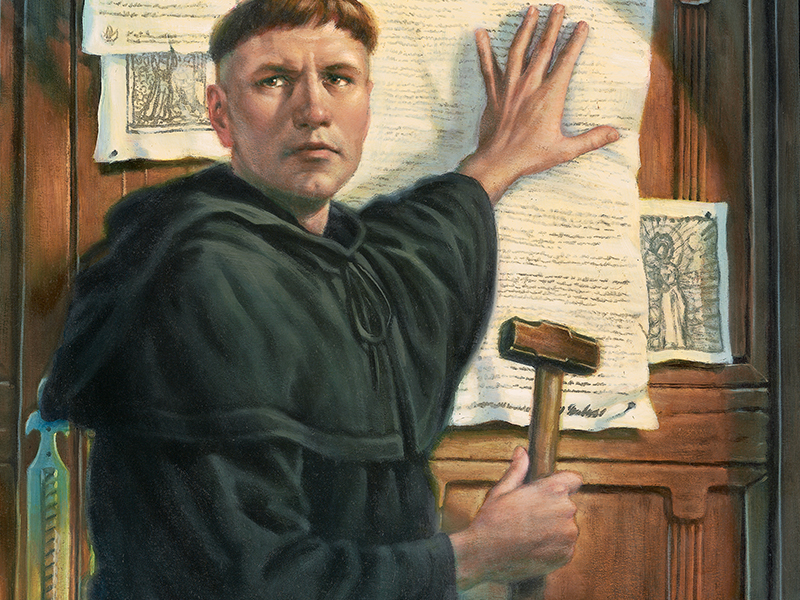
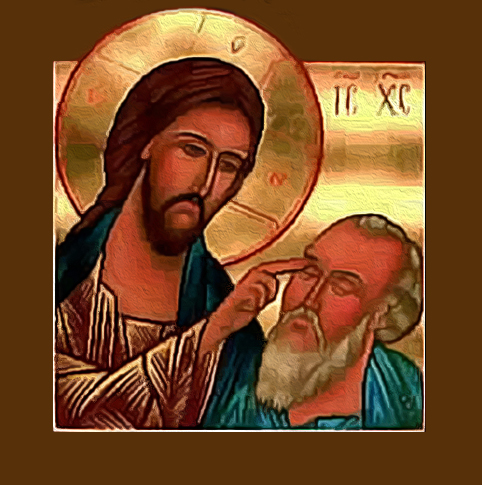
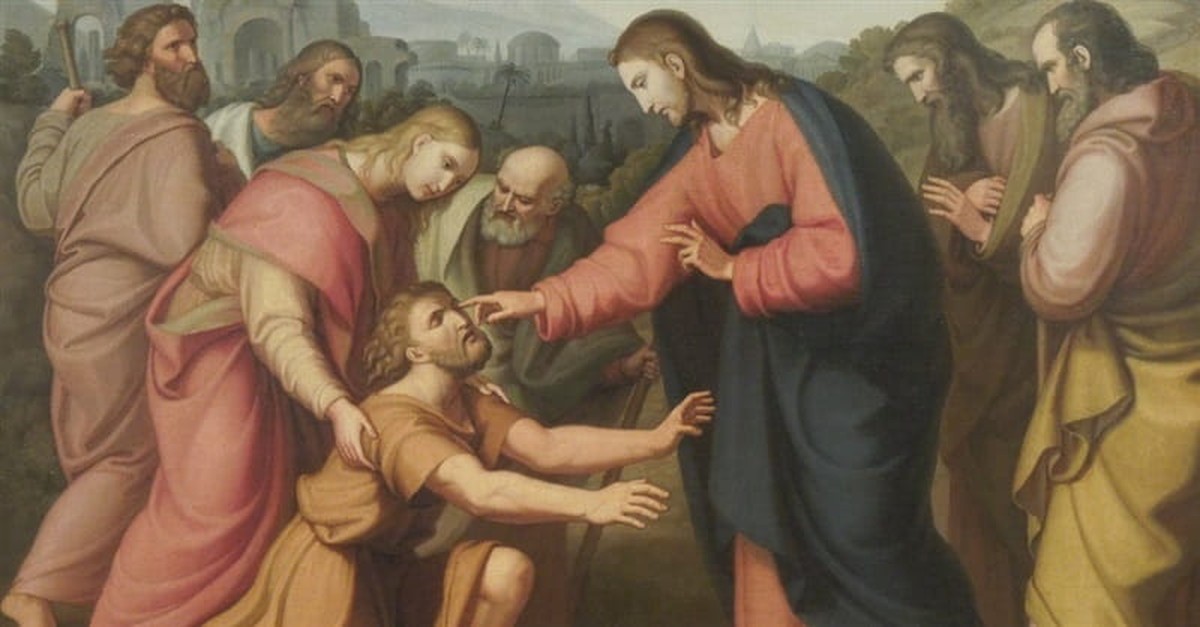

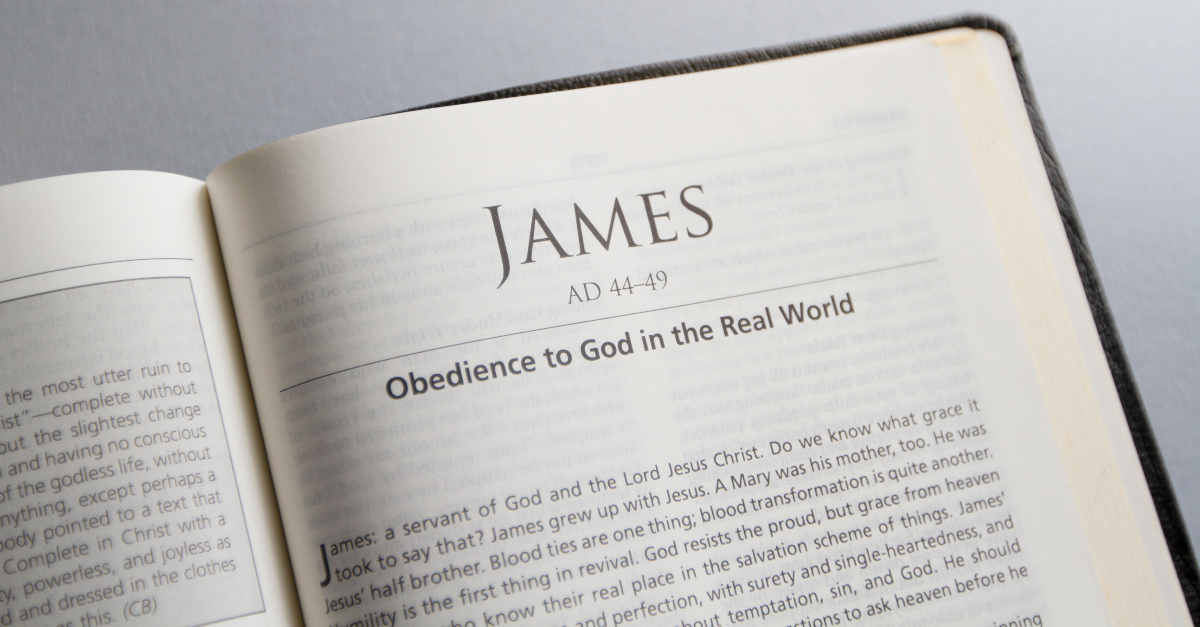


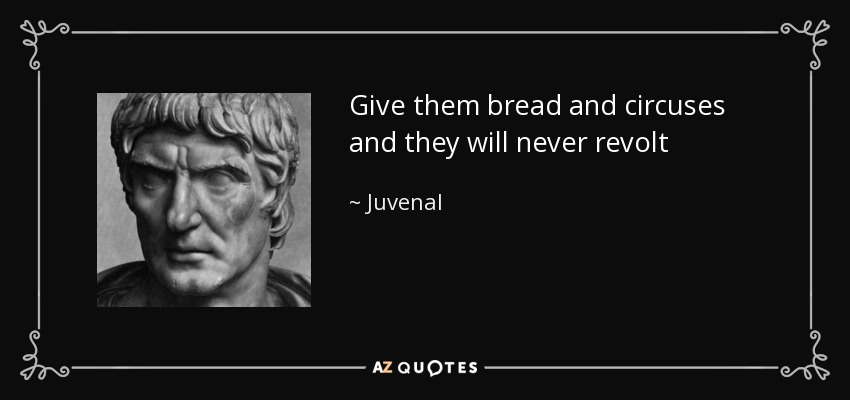



.jpg/800px-Ananias_restoring_the_sight_of_st_paul_(34663925).jpg)





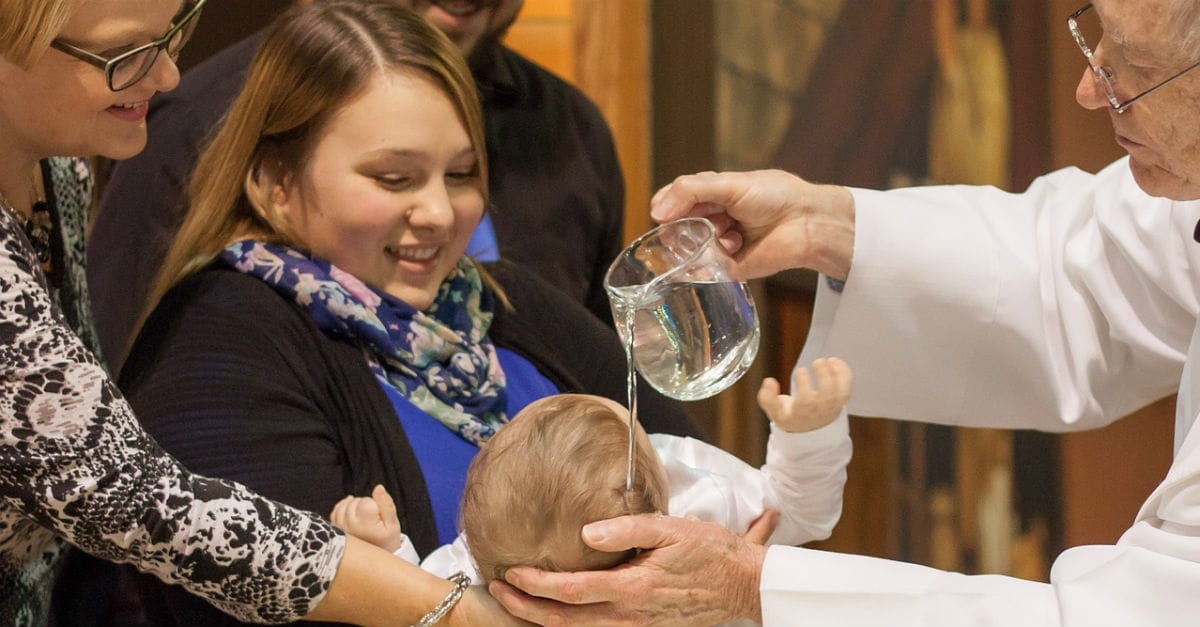
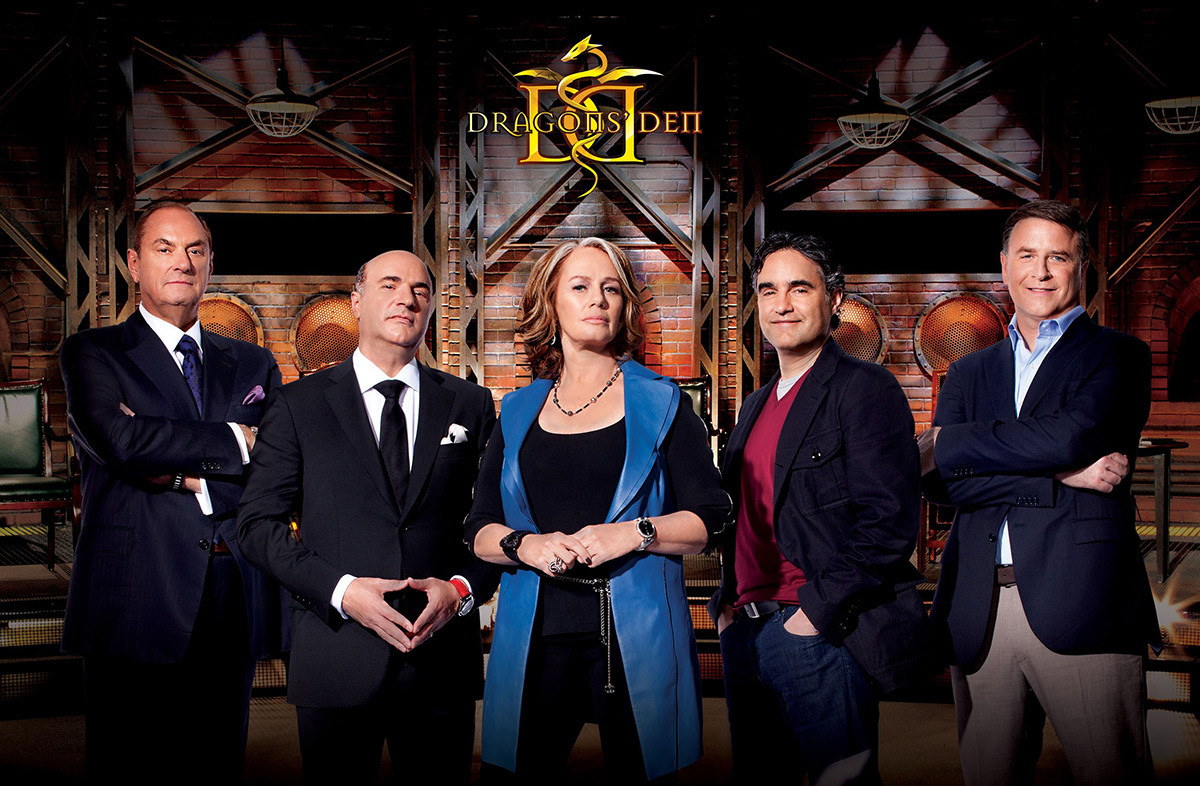

:max_bytes(150000):strip_icc()/emperor-justinian-and-bishop-maximianus-after-a-mosaic-in-ravenna-124094055-589b3c185f9b5874eedd6fee.jpg)




